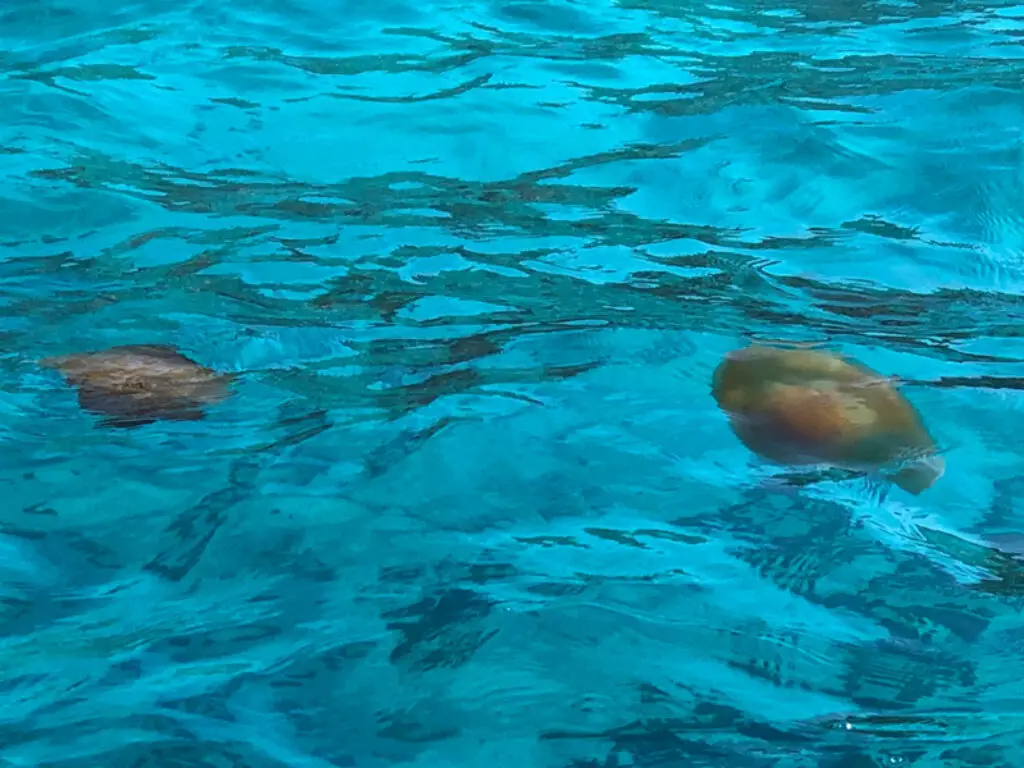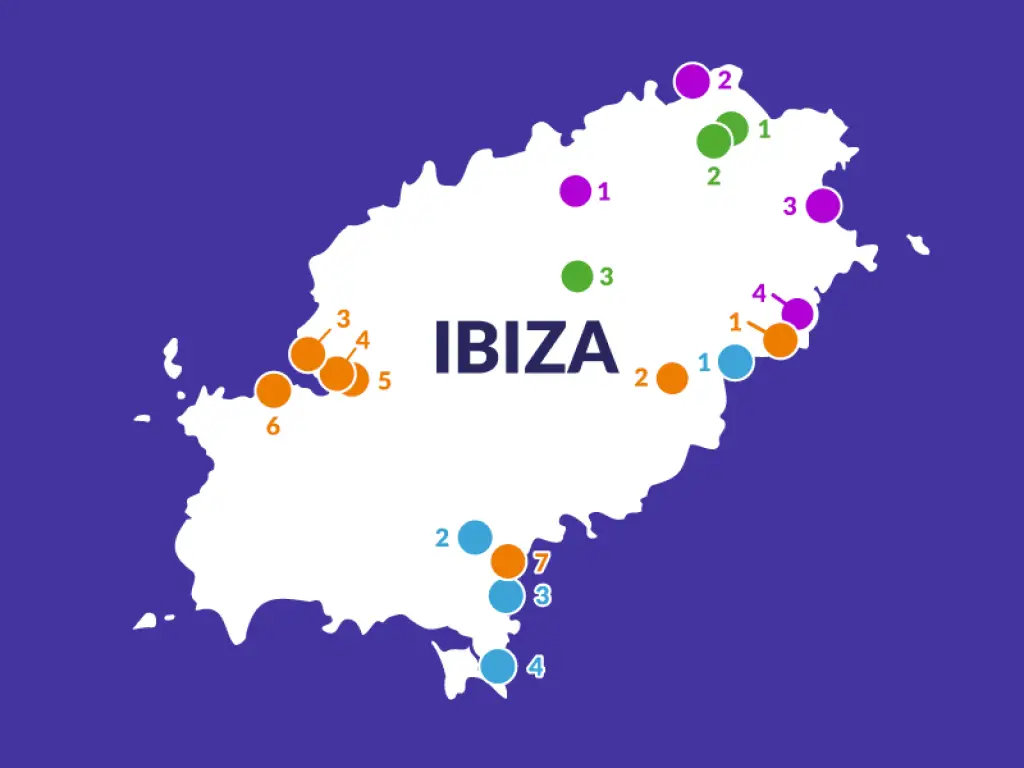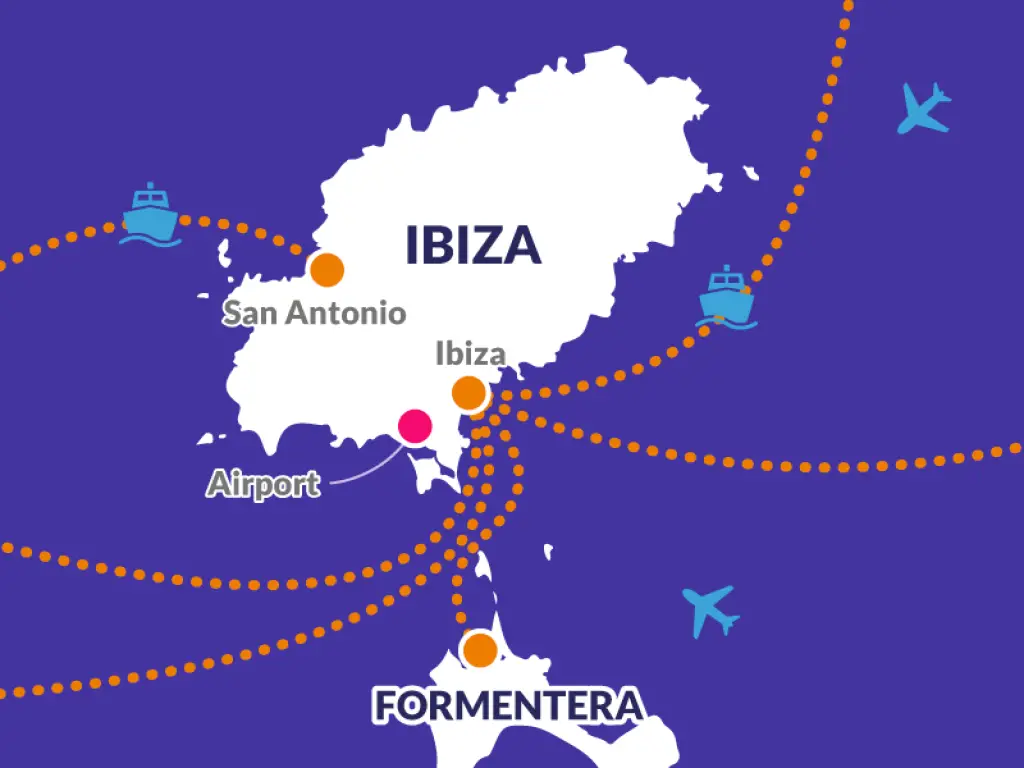Mosquitoes in Ibiza | Types | Disease | Prevention | Care
Ibiza is great for soaking up the sun, sea and atmosphere. However there is a nuisance on this island paradise – the presence of mosquitoes. These tiny yet persistent insects can dampen the otherwise idyllic experience. The good news is that implementing preventive measures can significantly enhance your enjoyment during your stay.
There are several species of mosquitoes in Ibiza, and their bites usually result in mild skin irritation. The exception is the Asian Tiger mosquito which has spread a few cases of Dengue Fever in 2022. While mainland Spain has reported cases of other mosquito-borne diseases, Ibiza remains free from them.
Most of the time with a good repellent you can effectively keep mosquitoes at bay. Most repellents are great for most species of mosquito. However a repellent with a high amount of DEET like this one will keep all species of mosquito away from you. For additional preventative measures and further information please read on.
How Bad is the Mosquito Problem in Ibiza?
There are always mosquitoes in Ibiza in warmer months of the year. Some years there are less and sometimes there are more, and is largely determined by weather conditions.
However, the general overall trend is an increase of mosquitoes on a yearly basis. This corresponds to the growing numbers of mosquitoes across Europe, which are spreading further north and westward on the continent. As a result you are more likely to encounter mosquitoes in Ibiza than ever before.
Most of the time, you will not encounter them, except at dawn and dusk when you are out. Some species of mosquitoes are more active during the day, but you will not encounter many, if at all.
Mosquito-Borne Diseases
Mainland Spain have seen all sorts of imported mosquito-borne diseases on its shores. On rare occasions there is locally spread disease including Malaria, West Nile Virus and Dengue Fever.
In fact the West Nile Virus killed 8 people in Andalucia, Spain in 2020. However Ibiza remains free from mosquito-borne diseases except for dengue.
6 German tourists contracted dengue in 2022. Although the risk of contracting dengue is low in Ibiza and highly unlikely, it prompted authorities to issue a warning. Additionally they compiled an action plan on tackling the issue which includes surveillance and vector control.
Dengue Fever Fatality Rate
Dengue has a fatality rate of 1%, but the percentage is higher for young children, older adults, and individuals with pre-existing medical conditions. However even mild dengue can result in a high fever of 104°F (40°C), severe headache, nausea and vomiting and other symptoms.
Types of Mosquitoes in Ibiza and What to Look Out For
In Ibiza there are several types of mosquitoes including:
- Asian Tiger Mosquito (Aedes Albopictus): This invasive species is known for its distinctive black and white striped appearance. The Asian Tiger mosquito is aggressive and known to bite during the day. This species can spread dengue fever which has happened in recent years in Ibiza.
- Common House Mosquito (Culex Pipiens): Culex Pipiens mosquitoes are generally active from dusk till dawn. They are brown in colour and do not spread any mosquito-borne disease in Ibiza.
- Malaria Mosquitoes (Anopheles Spp): Though malaria is not present in Ibiza, there are some species of Anopheles mosquitoes present on the island. These mosquitoes are typically active during the night.
- Floodwater Mosquito (Culiseta longiareolata): This mosquito species prefers to breed in areas with temporary standing water, such as flooded fields or pools of water after rainfall. They do not spread disease in Ibiza.
Preventing Mosquito Bites
Prevention is better than cure as they say, and there are several ways to keep mosquitoes in Ibiza away. Some methods work better than others, but by leveraging one or more, you can stay bite-free. In so doing, you will safeguard yourself and your loved ones from this nuisance and potentially harmful risk.
Here are some tips on how to prevent mosquito bites so you can enjoy your holiday in Ibiza:
1. Apply Mosquito Repellents
Mosquito repellents play a crucial role in preventing bites. There are some great products containing active ingredients like picaridin, or oil of lemon eucalyptus, that are effective in repelling most mosquito species.
However these types of repellents are not effective against the Asian Tiger mosquito, which is the one that spreads dengue. To protect yourself again all types of mosquitoes including the Asian Tiger, the WHO suggests to use a repellent with a high amount of DEET. Jungle Formula is particularly good because it doesn’t smell like metal and it 90ml and suitable to pack in your carry on luggage.
You will need to apply the repellent to exposed skin and clothing, and follow the product’s instructions for safe and optimal use. This repellent will give you up to 9 hours of protection, but is not suitable for kids under 12 years of age. Hence you will need to consider other methods to protect kids.
2. Wear Protective Clothing
When you are venturing outdoors you should consider wearing long-sleeved shirts, long trousers, and socks. Loose-fitting, light-coloured clothing is a good choice. This is not only to cover your skin, but it also makes it more difficult for mosquitoes to bite through the fabric.
3. Avoid Fragrances and Dark Clothing
Mosquitoes are attracted to strong scents, including perfumes and scented lotions. To reduce the likelihood of getting bitten, opt for fragrance-free products. Additionally, you should avoid wearing dark-coloured clothing, as mosquitoes are particularly drawn to these shades, especially the Asian Tiger.
4. Use Window Screens
If you have insect screens installed in the hotel or holiday flat, you should make use of them. They provide an excellent barrier between you and the outside world. They will keep mosquitoes from entering while still allowing fresh air to circulate. Make sure your window screens are intact and free from tears or holes before you make use of them.
5. Employ Air Conditioning
When you are indoors, you can switch on the air conditioning on a cool setting to control the indoor temperature and humidity. Mosquitoes are less active in cooler environments, so
you can reduce their presence and discourage them from hanging around.
I find that if the ac is on a cool enough setting at night, I will not get bitten by mosquitoes. That is, even though they are stuck in the room with me.
If you are in a holiday flat you can switch on the ac on the coolest setting possible and open the bedroom door for 15 minutes. This will encourage any mosquitoes to leave the room so you can have a peaceful night’s sleep.
6. Employ Mosquito Nets for Beds
Mosquito bed nets are a time-tested and reliable method to prevent mosquito bites. These nets act as a physical barrier, creating a protective shield around the sleeping area, effectively keeping mosquitoes at bay.
In regions where mosquito-borne diseases are prevalent, bed nets play a vital role in reducing transmission rates. In fact, The World Health Organization (WHO) recommends the widespread use of bed nets in malaria-endemic regions as part of their global strategy to combat the disease.
There are many different models of mosquito bed nets including free standing portable ones. Apart from not needing to hang them, they are affordable, not heavy, easy to set up, and can easily fit in your luggage.
7. Use Citronella Products
If you have an outdoor space in your holiday flat you can use citronella as a natural mosquito repellent. Products with citronella like candles, essential oils, or sprays can offer some level of protection in small outdoor areas.
They are easily available from many local supermarkets in Ibiza. However they are not as effective as chemical repellents, but they can be a valuable addition to your prevention strategy.
8. Use a Fan Indoors and Outdoors
Mosquitoes are not strong flyers. A breeze can disrupt their flight, making it more challenging for them to land and bite. So if there are fans available, you can set up them up to create a gentle breeze that can help keep mosquitoes at bay.
9. Eliminate Standing Water
Mosquitoes breed in standing water and are drawn to it. So you should remove any stagnant water sources around your holiday flat if you see any. You should empty or overly damp plant pot peat or soil, bird baths, buckets, and gutters. By reducing standing water, you’ll significantly decrease the mosquito population in your vicinity.
Treating Mosquito Bites
It’s best to prevent mosquito bites in the first place to spare yourself from discomfort and possible disease. However if you do get bitten, try not to scratch the area because you will likely aggravate it. It’s hard not to, but avoiding scratching will make the bite less bothersome and heal faster.
If you do get bitten and feel uncomfortable, you can apply After Bite, which you can buy from Amazon or at select pharmacies. It’s specifically formulated to soothe and calm irritated skin from insect bites, making it a handy addition to your first aid kit. The best part is, it comes in a small bottle, that you can easily carry in your pocket or bag wherever you go.
Remember, if the bite gets worse, stays for a long time, or you have other symptoms like a fever, it’s a good idea to see a doctor for advice.
Mosquito Season
The mosquito season in Ibiza typically starts in late spring, around April or May, when temperatures begin to rise. Mosquito activity continues to increase through the summer months, reaching its peak during July and August.
As the weather starts to cool down in the early autumn months of September and October, mosquito activity gradually decreases. By late autumn and winter, when temperatures drop significantly, mosquito activity diminishes, and the mosquito season comes to an end.
However, mosquito activity can vary each year depending on weather patterns and environmental conditions.
Related Articles

Jellyfish in Ibiza: Info, Best Live Bays, Treatment

12 Fun Things to do With Kids in Ibiza + Map

The Best Way to Get to Ibiza – Ferry, Plane or Train